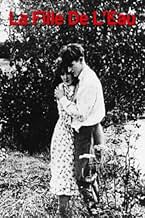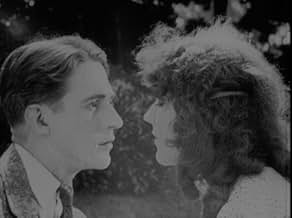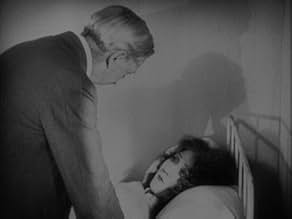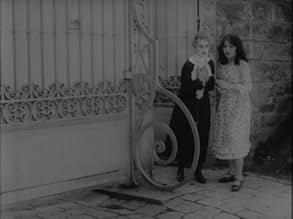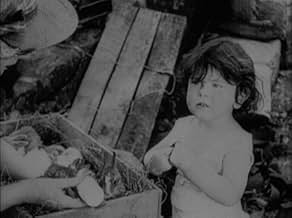After her father's death and her uncle having drunk all the inheritance, Virginia is left alone. She is accepted by a family of bohemians but a quarrel between the bohemians and the peasants... Read allAfter her father's death and her uncle having drunk all the inheritance, Virginia is left alone. She is accepted by a family of bohemians but a quarrel between the bohemians and the peasants coerce her to flee the peasants' riot. She is then helped by Raynal who falls in love wit... Read allAfter her father's death and her uncle having drunk all the inheritance, Virginia is left alone. She is accepted by a family of bohemians but a quarrel between the bohemians and the peasants coerce her to flee the peasants' riot. She is then helped by Raynal who falls in love with her but is too shy to tell her. Sheltered by his father, Virginia is robbed by her uncle... Read all
- Director
- Writer
- All cast & crew
- Production, box office & more at IMDbPro
Featured reviews
But there is a dream sequence here that, as so often with these silent dreams, I urge you to see. It's about the girl transmuting in her feverish mind these barely comprehensible forces that threaten the virgin soul into images that will make sense; so an imaginative flight, a sensual, delirius game of hide-and-seek where the coarse, violent men haunt her down, where a piece of rope transforms into the snake of mischievous desire, a point-of-view rushing towards a door and the light outside, and finally the man who can protect her shown, quite literally, as a champion on his white horse galloping across the skies.
The overwhelming experience is so perfectly about the distorted imprint of the world. This should be seen next to the best moments in Epstein. There is shadow here cast by the eye in motion, emotional or otherwise.
Another note that intrigues, a blemish in the perfect picture of her well-to-do benefactor. His parents are shown at one point hastily leaving for Algiers on account of business; what was probably meant innocently at the time, now can only leave us wondering at his source of wealth.
The plot is simple and melodramatic: Hessling loses her father, is abused by her brutish uncle (possibly inspired by Griffith's BROKEN BLOSSOMS [1919]), falls in with crooked gypsies (who ultimately incur the wrath of the people and have their caravan burned to the ground), is taken in by a wealthy family but is caught stealing for her uncle's sake until the latter gets his come-uppance and the girl is engaged to her employer's young son. The accompanying organ score is effectively evocative to begin with but, eventually, it takes a tediously avant-gardist turn.
The film's barge opening anticipates Jean Vigo's L'ATALANTE (1934) and the search at sea, F.W. Murnau's SUNRISE (1927); there is also some remarkably fast cutting throughout, a style which Renoir would largely forsake in his subsequent work. The highlight of WHIRPLOOL OF FATE, however, is undoubtedly an amazing dream sequence which, uncharacteristically for the director, is heavily reliant on optical effects and camera technique; incidentally, the two shorts I followed it with on Lionsgate 3-Disc "Jean Renoir's Collector's Edition" proved similarly experimental.
The editing was just amazing. The quick cuts where so spot on and well paced. And the trick shots where like something from a poetic avant garde film. There was also a very nice close up of eyes, which reminded me of the Spaghetti Westerns.
The story is not bad. Reminded me a little of D.W. Griffith mellow drama. The acting is also not too bad but the strength of this film is first and foremost its visual aspect, something sadly lacking in his other silent films I have seen.
Did you know
- TriviaCharlotte Clasis's debut.
- ConnectionsEdited into Spisok korabley (2008)
Details
- Runtime1 hour 11 minutes
- Color
- Sound mix
- Aspect ratio
- 1.33 : 1
Contribute to this page



